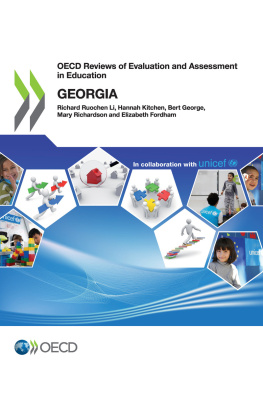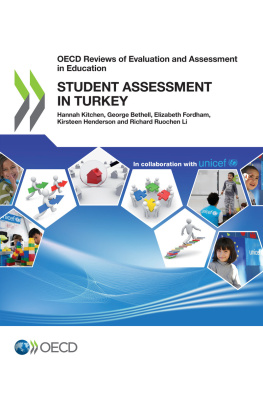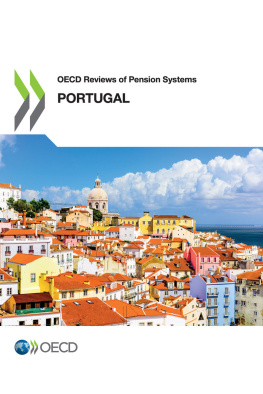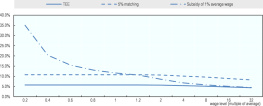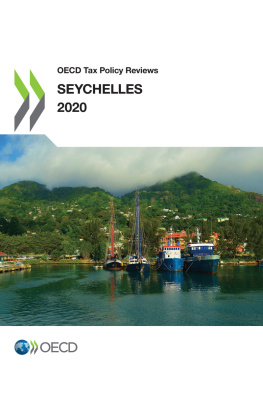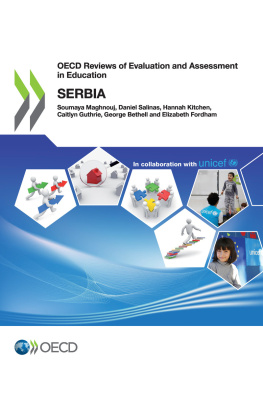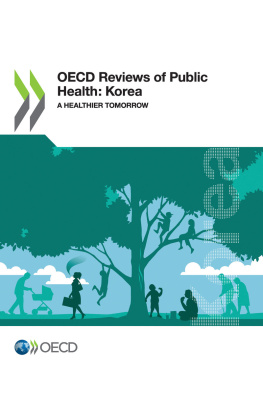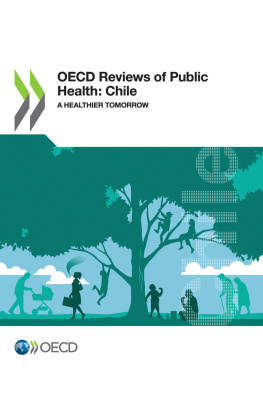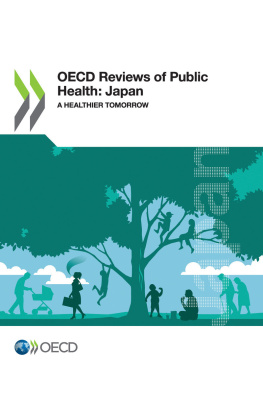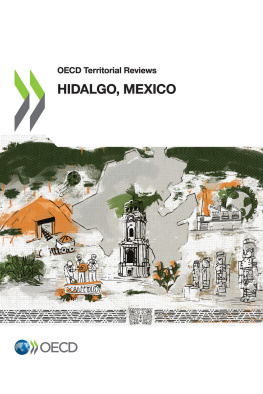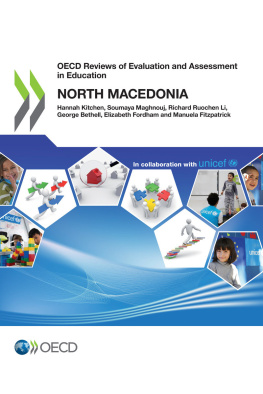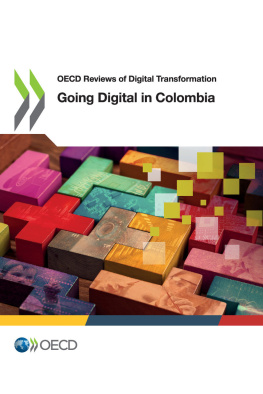Li R. - OECD Reviews of Evaluation and Assessment in Education: Georgia
Here you can read online Li R. - OECD Reviews of Evaluation and Assessment in Education: Georgia full text of the book (entire story) in english for free. Download pdf and epub, get meaning, cover and reviews about this ebook. year: 2019, publisher: OECD Publishing, genre: Politics. Description of the work, (preface) as well as reviews are available. Best literature library LitArk.com created for fans of good reading and offers a wide selection of genres:
Romance novel
Science fiction
Adventure
Detective
Science
History
Home and family
Prose
Art
Politics
Computer
Non-fiction
Religion
Business
Children
Humor
Choose a favorite category and find really read worthwhile books. Enjoy immersion in the world of imagination, feel the emotions of the characters or learn something new for yourself, make an fascinating discovery.
OECD Reviews of Evaluation and Assessment in Education: Georgia: summary, description and annotation
We offer to read an annotation, description, summary or preface (depends on what the author of the book "OECD Reviews of Evaluation and Assessment in Education: Georgia" wrote himself). If you haven't found the necessary information about the book — write in the comments, we will try to find it.
Li R.: author's other books
Who wrote OECD Reviews of Evaluation and Assessment in Education: Georgia? Find out the surname, the name of the author of the book and a list of all author's works by series.
OECD Reviews of Evaluation and Assessment in Education: Georgia — read online for free the complete book (whole text) full work
Below is the text of the book, divided by pages. System saving the place of the last page read, allows you to conveniently read the book "OECD Reviews of Evaluation and Assessment in Education: Georgia" online for free, without having to search again every time where you left off. Put a bookmark, and you can go to the page where you finished reading at any time.
Font size:
Interval:
Bookmark:
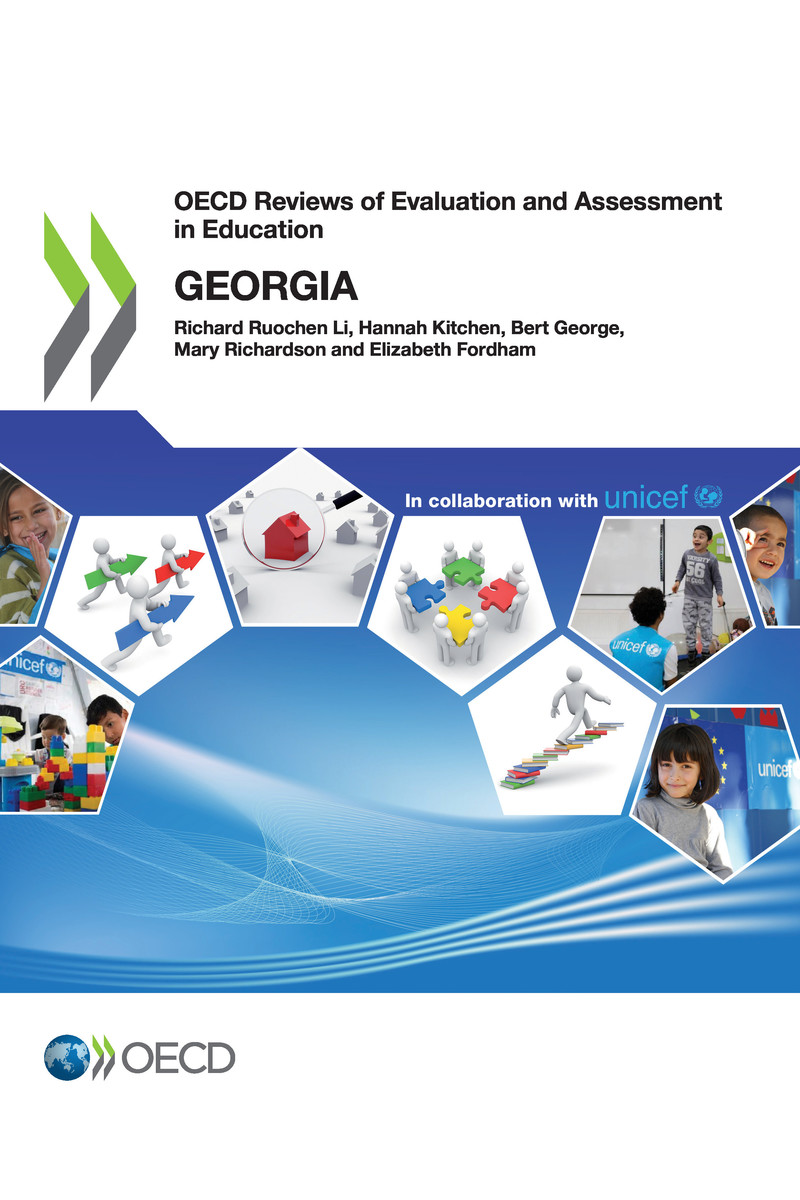
Li, R. et al. (2019), OECD Reviews of Evaluation and Assessment in Education: Georgia , OECD Reviews of Evaluation and Assessment in Education, OECD Publishing, Paris, https://doi.org/10.1787/94dc370e-en .
Georgia has made remarkable progress in expanding access to education and improving outcomes. However, the majority of children in Georgia still leave school without having acquired the basic competencies they need to compete in the 21st century economy. Furthermore, students from rural areas, national minority backgrounds and socio-economically disadvantaged contexts are at greater risk of being left behind compared to their peers. Therefore, education in Georgia needs strategic and targeted reforms so that all children in Georgia can learn and thrive.
This review was undertaken in partnership by the OECD and UNICEF at the request of, and in close collaboration with, the Ministry of Education, Science, Culture and Sport of Georgia.
Focused on the countrys educational assessment and evaluation systems, this review offers suggestions that leverage several of the promising policies that have been enacted by the Government. At the centre of these proposals is orienting all evaluation and assessment practices to focus on student learning. This means that any recommendations with respect to how students are assessed, teachers are appraised, schools are evaluated or the system is evaluated are done with the ultimate aim of helping students learn.
The review builds on the collaboration between the OECD Directorate for Education and Skills with UNICEFs Regional Office for Europe and Central Asia and UNICEFs Country Office in Georgia. It has benefited from our organisations complementary experience and expertise to provide an analysis that is grounded in the context of evaluation and assessment in Georgias education system while drawing on international research and best practice from around the world.
Above all though, we hope that this review will be a useful reference for Georgia as it reforms its educational evaluation and assessment systems. This review discusses many of the policy options that the country is considering, from developing a new examinations system to introducing comprehensive school evaluations. The review also provides guidance that can be used to inform decision-making. We hope that the reviews recommendations contribute to the further development of an education system that provides excellence for all.

Andreas Schleicher
Director for Education and Skills and Special Advisor on Education Policy to the Secretary-General

Ghassan Khalil
UNICEF Representative to Georgia
This review was funded by UNICEF and developed in close co-operation with UNICEFs Regional Office for Europa and Central Asia whose staff provided valuable guidance and support. In particular, the review team would like to thank Parmosivea Soobrayan, Regional Education Advisor for Europe and Central Asia region, for his co-operation and commitment to the partnership between the OECD and UNICEF. The review team would like to convey our sincere appreciation to the UNICEF Georgia Country Office, led by Ghassan Khalil, Representative and Gottfried Hanne, Deputy Representative. We would also like to thank the UNICEF Georgia education team, notably Maya Kuparadze, Education Officer, and Nani Zeinklishvili, Programme Associate for their guidance, support and insights.
The review team would further like to thank the Government of Georgia, under the leadership of the Ministry of Education, Science, Culture and Sport (MoESCS) for their support and contributions to the review. The review has strongly benefited from the encouragement and support of the Deputy Minister Irina Abuladze who also chaired the Steering Committee.
We are also very grateful to the officials and education experts from the MoESCS and beyond, who graciously shared their insights and knowledge with us, in particular the members of the Steering Committee, including Kakha Khandolishvili, Head of International Relations Department of the MoESCS, Natia Gabitashvili, Head of European Integration and Relations with International Organizations of the MoESCS (Secretary of the Steering Committee), Nodar Razmadze, Head of Strategic Development Department of the MESCS, Sopho Gorgodze, Director of National Assessment and Examination Center, George Vashakidze, Director of National Center for Education Quality Enhancement, and Dimitry Beridze, Head of Education Management Information System.
We sincerely thank all the participants in the review visits, including officials from the MoESCS and its agencies National Assessment and Examinations Centre (NAEC), Teacher Professional Development Centre (TPDC), National Centre for Education Quality Enhancement (NCEQE) and Education Management Information System (EMIS). We would also like to extend our gratitude to other national bodies, such as the Ilia State University, to civil society organisations, such as the Centre for Civil Integration and Inter-Ethnic Relations (CCIIR), as well as to international bodies including the World Bank, Millennium Challenge Corporation, USAID, the European Union Delegation and the Asian Development Bank. We are grateful to the researchers, non-governmental organisations, school leaders, teachers, teacher unions, parents and students, that kindly gave their time to share their views, experience and knowledge with us. We would especially like to thank the schools in Tbilisi and Kvemo Kartli municipalities for welcoming us so warmly during our review visits.
Font size:
Interval:
Bookmark:
Similar books «OECD Reviews of Evaluation and Assessment in Education: Georgia»
Look at similar books to OECD Reviews of Evaluation and Assessment in Education: Georgia. We have selected literature similar in name and meaning in the hope of providing readers with more options to find new, interesting, not yet read works.
Discussion, reviews of the book OECD Reviews of Evaluation and Assessment in Education: Georgia and just readers' own opinions. Leave your comments, write what you think about the work, its meaning or the main characters. Specify what exactly you liked and what you didn't like, and why you think so.

